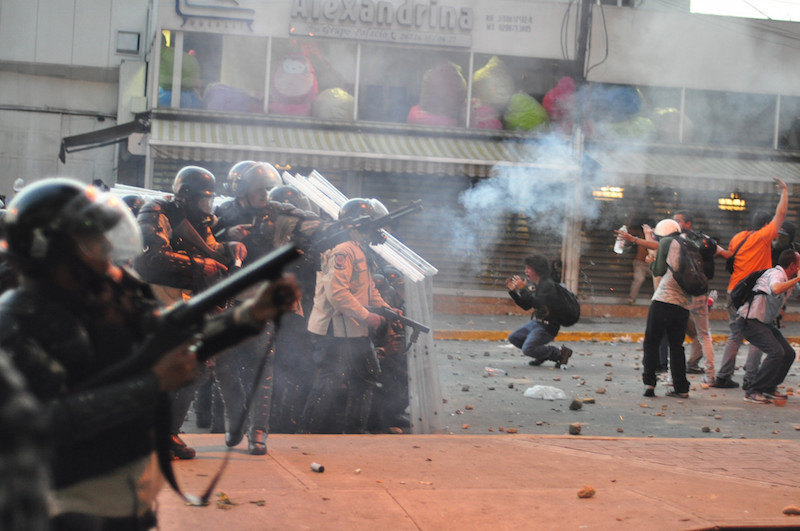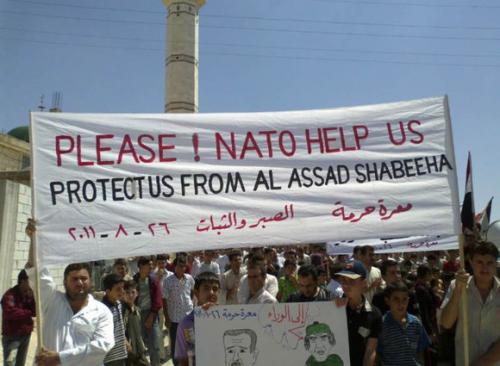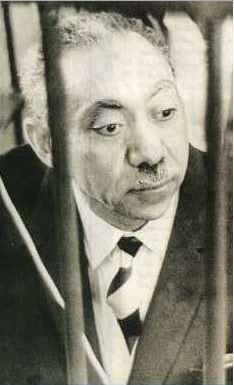I recently interviewed a few journalists from Venezuela. Here are their stories.
Mariana, 21- Journalist from Valencia
What are the protests most attributable to? Politics, economy or both?
Both, and more. You can try and attribute them to a single problem, but in Venezuela there are so many things going on at the same time that really, I think people are just protesting because there is no life worth living here. It all started when they revoked all of the National Assembly functions, leaving the TSJ (Supreme Court of Justice – Tribunal Supremo de Justicia) in charge. A completely corrupted, government controlled, criminal TSJ, I must add. We know the majority of the Venezuelan people rightfully elected this National Assembly, and because it holds a majority of opposition congressmen, the government never cared to acknowledge their power. That was the beginning of the protest.
How much has media played a role in these protests?
Venezuelan media is completely censored. We’ve got no television channels that cover the protests, no radio channels, nothing. Every media in the country is controlled by Conatel: if you don’t follow their rules, you will get shut down. (…) By 2015, there were 240 radio channels closed by Conatel. (…) There is no freedom of speech here, the only source we can get a little information from is Twitter, basically the lifeline between Venezuelans and information. If it wasn’t for twitter, we wouldn’t be able to communicate and distribute news in real time. Journalists share information on their accounts, but mainly the citizens are the ones in charge. It’s citizen journalism at its finest, people have become accustomed to covering protests with pictures, date, hour, location, everything. We are extremely disappointed in Venezuelan communication channels, and Conatel is even blocking internet pages like VivoPlay or CNN, blocking international channels from our TV’s, doing everything they can to keep people in an informational blackout.
Daniel, 23 – Journalist
Do you think a coup d’etat will take place and oust Maduro?
I really doubt a coup could take place in Venezuela, this is a country where the Armed Forces call themselves “chavistas”, where high ranking military officers live better than most, thanks to mafias involving the selling of food and other hard to come by commodities on the black market, with drug dealing scandals within the armed forces, like the Hugo Carvajal case. For these reasons I find it very unlikely that we could have a coup , the government made sure that high ranking officers could keep their pockets full, on top of that the National Bolivarian Guard (GNB), one of the branches of the armed forces, have carried out human rights violations during the repression of the protests on behalf of the government. Nicolás Maduro and Hugo Chávez before him have made claims of conspiracies and possible coups masterminded by the opposition and the United States, but have constantly failed in providing proof to back these allegations.
Do you think elections will change anything?
Yes, but I’m one of the people that thinks that we need to restore democracy before we can have elections. When you have a partisan electoral center, political opposition leaders imprisoned or unable to run in elections because of arbitrary court rulings and a shady justice system, it’s very hard to have transparent elections.
Lucia, 29– Journalist who now resides in the U.S.
Why do you think the Venezuelan government is reluctant to receiving aid and humanitarian assistance? Are they afraid to show the world they can’t provide for their citizens?
Yes, definitely. If they are open to help, they would accepting their negligence. It is so unfair, because we really need help, especially for sick people who cannot get treatment.
With oil prices remaining low, do you think the problems in Venezuela will worsen?
We Venezuelans have not seen the fruits of our oil. What we have seen is how the state continues to receive money, becoming “socialists” while on the streets we see people dying for lack of medicine. It probably affects our economy more, but I don’t know if we can be worse than now.
Kimberly, 24 – Journalist from Coro City
Do you think Venezuela will become a failed state?
I think we are already a failed state. There is protesting everywhere in Venezuela, not just Caracas. There is no guarantee for nothing. We don’t have medicine, elections, and criminality is very high. More people are killed in Venezuela than in Afghanistan per year. 25,000 people per year, and our capital city is the most dangerous city in the world and we are not even in a war.
There is no guarantee for economic development, progress, and health. We are now the poorest country in the region, below Haiti. (…) There is nothing in hospitals or pharmacies.
The level of impunity is 90%. That is an official number. There is a high chance of getting away with murder. There are no space for jails and no investigations. People are no longer robbing for phones and computers. They are now robbing for food and that causes more chaos and desperation where people fight each other to death on the streets.
Can you tell me what your experiences are like in Venezuela with regards to the protests?
I have been threatened, kidnapped, and robbed of all my stuff. This happens to people everyday. Right now talking to you, it is not safe to go outside. I could go outside and there is a high chance I could be shot. It’s a suicide if I were to go outside when it’s dark. The value of human life is very low. The reason why I’m talking to you is I have nothing else to lose. I have lost almost everything. The chance of me dying now is very high simply because there is no state presence.
Photo: Venezuelan Protests (2014), by Andres E. Azpurua via Wikimedia Commons. Licensed Under CC BY-SA 3.0.
Disclaimer: Any views or opinions expressed in articles are solely those of the authors and do not necessarily represent the views of the NATO Association of Canada.




